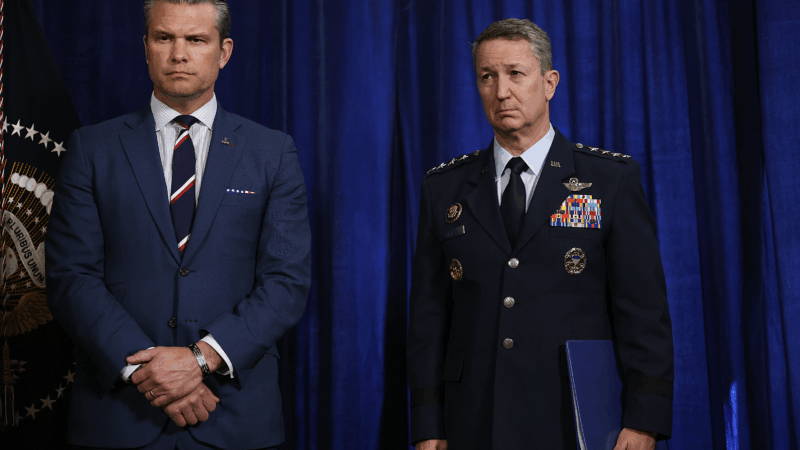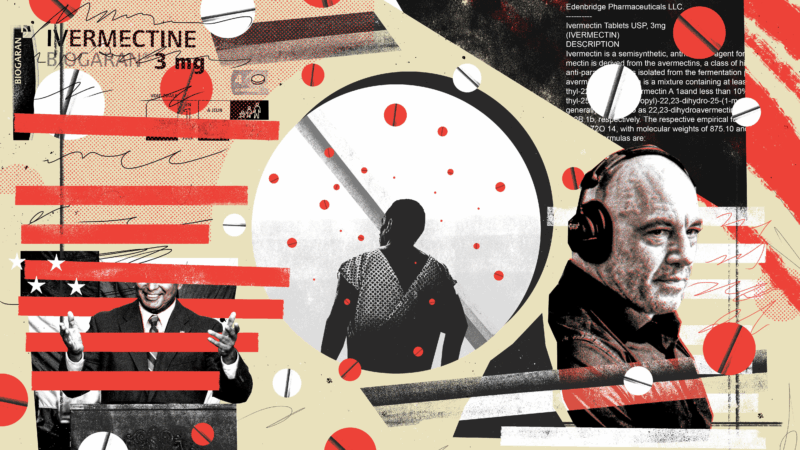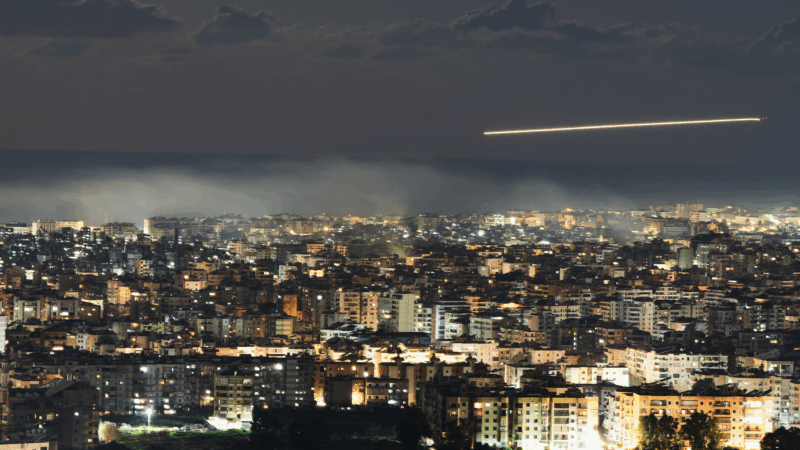Trump DOJ changes to civil rights division spark mass exodus of attorneys
The Justice Department’s Civil Rights Division is in upheaval amid a mass exodus of attorneys as the Trump administration moves to radically reshape the division, shelving its traditional mission and replacing it with one focused on enforcing the president’s executive orders.
Some 250 attorneys — or around 70% of the division’s lawyers — have left or will have left the department in the time between President Trump’s inauguration and the end of May, according to current and former officials.
It marks a dramatic turn for the storied division, which was created during the civil rights movement and the push to end racial segregation. For almost 70 years, it has sought to combat discrimination and to protect the constitutional rights of all Americans in everything from voting and housing to employment, education and policing.
Now, the administration is redirecting the division to enforce the President Trump’s executive orders, including ending the alleged radical indoctrination in schools, defending women from “gender ideology extremism,” and combatting antisemitism and purported anti-Christian bias.
Five current or former department officials, most of whom spoke on condition of anonymity for fear of retribution, say the current effort amounts to the dismantling of the division and its traditional mission.
“The Civil Rights Division exists to enforce civil rights laws that protect all Americans,” said Stacey Young, a former division attorney who left the department in late January. “It’s not an arm of the White House. It doesn’t exist to enact the president’s own agenda. That’s a perversion of the separation of powers and the role of an independent Justice Department.”
It is normal for the division’s priorities to shift from administration to administration, particularly from one party to another. But the changes underway now are far beyond the normal recalibration, current and former employees and outside observers say.
The changes are being implemented by the division’s new head, Harmeet Dhillon, a conservative attorney whom Trump appointed and the Senate confirmed in April.
Speaking at a recent Federalist Society event, Dhillon likened the division’s work under Democratic administrations to a speeding train. She said Republican administrations typically try to “just slow the train down.”
“There really hasn’t been a focus on turning the train around and driving it in the opposite direction. And that’s my vision of the DOJ civil rights [division],” she said. “We don’t just slow down the woke. We take up the cause to achieve the executive branch’s goals. This is the opportunity where we can ensure that our nation’s civil rights laws benefit all Americans, not just a select few.”
180-degree turn
Already, the administration has started to execute that 180-degree turn. Under the new leadership, the department has dropped investigations, and withdrawn statements of interest or amicus briefs in some 30 cases, according to public court records. Those include cases related to voting rights, alleged racial discrimination in hiring, and civil actions against anti-abortion activists.
Dhillon has issued new mission statements for the division’s 11 sections that push Trump’s priorities and redirect resources to enforcing his executive orders. Those missions include “Protecting Children from Chemical and Surgical Mutilation,” “Keeping Men Out of Women’s Sports,” “Eradicating Anti-Christian Bias” and “Additional Measures to Combat Antisemitism.”
Young said the changes amount to the destruction of the division and its traditional work.
“The division right now is being decimated,” said Young, who now runs Justice Connection, a group of department almuni that provides support to DOJ employees. “The head of the division and the Justice Department have decided that the division is going to enforce laws only with respect to favored communities of people.”
Craig Futterman, a professor at the University of Chicago Law School, said the changes underway “are turning the Civil Rights Division on its head.” The Trump administration, he added, “is using a division that has a history of protecting the most vulnerable among us to actually wage an all-out assault on the civil rights of vulnerable people, including Black people, brown people, women, LGBTQIA folk.”
“I grew up in the wake of the civil rights movement where we celebrated all the heroes in the progress and the gains, and knowing that there’s still so much work that needs to be done in this country. And this is the most dramatic backward turn that I’ve experienced in my lifetime,” Futterman said.
Attorneys quitting en masse
The changes being imposed under the Trump administration have prompted attorneys in the division to leave en masse. Certain sections have been particularly hard hit by departures, including voting, education and special litigation.
Some of those who have left have quit, while others have taken the administration’s deferred resignation program or retired early.
The latest round of mass departures occurred in recent weeks as the leadership began reassigning managers—widely seen as a push to have them quit—and forcing attorneys to work on task forces dedicated to certain Trump priorities like antisemitism or transgender issues.
Dhillon, in her remarks at the Federalist Society event, acknowledged the departures.
“We wish them well in their future endeavors and their passions,” she said. “They need to pursue them elsewhere. That’s not going to be happening at the DOJ.”
Different from first Trump term
By and large, attorneys in the division feel like they can no longer do the work they’ve always been able to do, including during the first Trump administration.
Then, there was no mass exodus, department veterans say. Attorneys stayed put and continued their normal work. The administration scaled back—but did not end—work in a few priority areas, like policing.
But now, current and former officials say, there’s a sense that the division is weaponizing the country’s civil rights laws against populations it’s supposed to be protecting. They say the abandonment of the traditional mission has been devastating. One official recalled attorneys walking around the hallways in tears or sobbing through meetings.
“The division has a few hundred lawyers who were diligent in making sure that people were held accountable for discrimination,” Young said. “Without that enforcement, without the knowledge that unlawful discrimination can be tamped down through the division’s work, we’re going to see, I think, a whole lot more unlawful discrimination.”
Transcript:
JUANA SUMMERS, HOST:
The Justice Department’s Civil Rights Division is in upheaval. The new Trump-appointed leadership is trying to dramatically reshape it and its mission. That has prompted a mass exodus of attorneys from the Civil Rights Division, which has been regarded as a crown jewel of the DOJ. NPR justice correspondent Ryan Lucas is here in the studio. Hey, Ryan.
RYAN LUCAS, BYLINE: Hey there.
SUMMERS: So Ryan, let’s start with the Justice Department’s leadership. What do they say they’re doing with the Civil Rights Division?
LUCAS: So first off, the Civil Rights Division has been around for almost 70 years. It was born out of the Civil Rights Movement and the push to end segregation. And traditionally, the division has protected the constitutional rights of all Americans. It combats discrimination in schools, in public housing, in the workplace, in policing, hate crimes. And it’s normal for the priorities of the division to shift a bit from administration to administration, particularly from Republican to Democratic administration, but what’s happening now is something entirely different. Here’s how Harmeet Dhillon, the new head of the division – appointed by Trump – described her vision for civil rights enforcement at a recent event with the conservative Federalist Society.
(SOUNDBITE OF ARCHIVED RECORDING)
HARMEET DHILLON: We don’t just slow down the woke. We take up the cause to achieve the executive branch’s goals. This is the opportunity where we can ensure that our nation’s civil rights laws benefit all Americans, not just a select few.
SUMMERS: So Ryan, what does that look like in practice so far?
LUCAS: Well, I’ve talked with five current and former Justice Department officials. Some of them spoke on condition of anonymity because they aren’t allowed to talk to journalists, and they all describe this very differently from how Dhillon does. They say that Dhillon quite simply is dismantling the Civil Rights Division and its traditional mission. One described it as taking an axe to the division. And they say that under the Trump administration, the division is largely abandoning its traditional mission of enforcing the nation’s civil rights laws for all Americans, and instead, it’s being turned into an enforcement arm of the administration. And its new mission, largely, is to enforce President Trump’s executive orders. So things like ending the purported radical indoctrination in schools, defending women from gender ideology extremism, combating antisemitism and alleged anti-Christian bias. And what that has done, I’m told, has prompted this mass exodus that we’re seeing of experienced attorneys from the division.
SUMMERS: You say mass exodus. How big of a group are we talking about here?
LUCAS: Well, I’m told that more than 70% of the attorneys who were at the Civil Rights Division on Inauguration Day have left or will have left by the end of this month. That’s approximately 250 attorneys. That is a huge number. Some of the hardest-hit sections, I’m told, are education, voting rights, special litigation. That last one is the section that investigates alleged abuse by police departments around the country. And people are leaving in a variety of ways. Some have just quit. Some have taken the administration’s deferred resignation program. Others have retired early. But the effect is significant. I spoke with former DOJ attorney Stacey Young. She spent the last chunk of her 18-year career in the Civil Rights Division before leaving after Trump’s inauguration.
STACEY YOUNG: It’s absolutely the dismantling of the division when, in just a couple of months, you have radically diverted enforcement in a way that drives out almost three-quarters of the division. There’s no other way to describe that but a dismantling.
LUCAS: Now, attorneys in the division, by and large, feel that they cannot do the sort of work that they’ve always been able to do, and that includes during the first Trump administration.
SUMMERS: OK. Well, I mean, there’s just been so much change – a lot of upheaval across the federal government right now. So tell us, why does this particular bit of turmoil stand out?
LUCAS: That’s a good question. And the answer that I’ve heard in my reporting is in essence that for decades, the Civil Rights Division has put employers and schools and owners of public housing and police departments on notice that if they don’t comply with civil rights laws, if they discriminate, they could face legal action. And so without the division doing that work, department veterans say there will likely be more unlawful discrimination in all facets of life across the country that’s just going to go unchecked.
SUMMERS: NPR’s Ryan Lucas, thank you.
LUCAS: Thank you.
(SOUNDBITE OF MUSIC)
Hegseth: ‘We didn’t start this war but under President Trump we’re finishing it’
The remarks are the first to reporters since the U.S.-Israeli military operations against Iran began Saturday despite weeks of talks designed to stave off a conflict.
Ivermectin is making a post-pandemic comeback, among cancer patients
The anti-parasitic drug became a household name during the COVID-19 pandemic, and it is now being embraced as an alternative treatment for cancer. It is as politically polarizing as ever.
Rep. Adam Smith on the U.S. strikes on Iran and the debate over Trump’s war powers
NPR's Leila Fadel asks Democratic Rep. Adam Smith of Washington, the ranking member on the House Armed Services Committee, about President Trump's unilateral authorization to strike Iran.
Iran war widens, threatening to engulf Lebanon
The war over Iran engulfed more of the Middle East and beyond on Monday as Lebanon's militant group Hezbollah responded to the killing of Iran's spiritual leader with its first attack on Israel in more than a year.
Peer pressure can make this clownfish change its stripes
Tomato clownfish, in response to an unpredictable world, appear capable of adjusting when they lose their stripes based on cues from other fish and their habitat, a new study in PLOS Biology finds.
Hezbollah strikes Israel as American and Israeli planes pound Iran
Iran and Iranian-backed militias fired missiles at Israel and Arab states, apparently hitting the U.S. Embassy compound in Kuwait, while Israel and the United States pounded targets in Iran on Monday.





